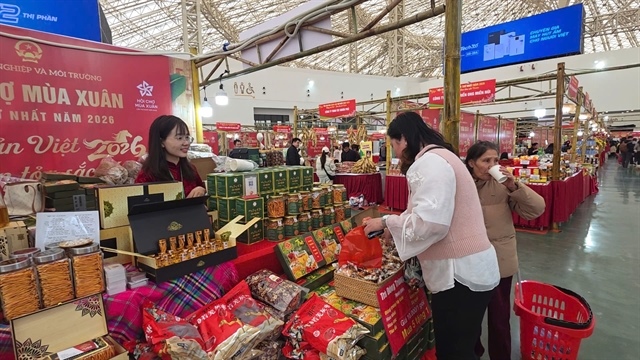Vietnam firms now opt to sell seafood for export in local supermarkets
Vietnam firms now opt to sell seafood for export in local supermarkets
High-quality seafood, such as shrimp and fish, has appeared more often in many supermarkets in Vietnam as more local firms specializing in producing seafood for export are turning to the domestic market.

Nguyen Anh Tuyet, who lives in Ho Chi Minh City’s Binh Thanh District, has bought tra fish, or pangasius, at a food store on District 2’s Thao Dien Street and squid at a shop on District 3’s Nguyen Dinh Chieu Street for the last six months.
What both products have in common is that they were made to be exported to the EU, instead of being sold in the domestic market.
“I initially chose them because they had the export certification for the EU market, and decided to keep buying them for their high quality compared to other products,” Tuyet said.
Tuyet shared that she had a chance to visit tra and basa fish breeding farms in the Mekong Delta province of An Giang, where the fish are fed using modern techniques. “It’s enjoyable to look at the fish, but their meat is not delicious due to the breeding method,” she added.
Tran Lan Huong from the city's District 10 also prefer salmon and tuna from a new seafood brand, whose prices vary from VND200,000 (US$9.4) to VND400,000 ($18.83) per kg.
“The frozen food is still delicious when I defrost it. Some kinds of fish were cut into thin slices so we need to wait just 5 to 10 minutes before cooking them,” Huong explained.
These customers are more careful in choosing daily nourishment due to the poor safety of local products and tend to buy qualified food meant for export despite its higher cost.
Exclusive choices, expensive prices
High-end products which are produced following strict criteria can often be found at seafood stores at prices 1.5 to 2 times higher than products primarily intended for the local market only.
Tra fish sold in District 2, bought by Anh Tuyet and many other customers, cost approximately VND340,000 ($16) per kilogram. The fish are bred by a German company based in An Giang.
The fish have received eco-certification from Naturland, an association for ecological farming in Germany, and have been mainly exported to European countries. Products that have this type of certification are often much more expensive than those that do not.
Frozen squid for export from a company in the south-central province of Binh Thuan sold at a food store on District 3’s Nguyen Dinh Chieu Street costs around VND370,000 (nearly $18) per kilogram, which is 1.5 to 2 times higher than the price of local market-bound products.
Many seafood companies are working to establish their brands in the domestic market and targeting supermarkets and convenience stores.
Nguyen Anh Tuan, from An Tuan Company in Binh Thuan, said that the firm’s initial vision was to produce food to ship to the EU, thus over the last six years the company has had no intention to sell food in the domestic market.
But it has recently received seafood orders and positive feedback from restaurants specializing in Japanese food in Vietnam, as well as some high-class food stores in Ho Chi Minh City.
“We still focus on exporting seafood but we will also pay more attention to the local market,” Tuan said.
The businessman added that local customers often think that fresh fish sold at city markets is delicious, but in reality most of those products are preserved, and thus not fresh.
Hoang Hai Yen, a representative of Vua Bien, a Vietnamese seafood company, said that the firm has collaborated with a company which specializes in producing high-quality seafood for export to the EU and the U.S.
Vua Bien originally targeted restaurants and established showrooms to introduce their products in several big cities. After over one year of operating, the company currently has branches in more than 20 cities and provinces across the country.
“Our prices are not too high compared to other domestic brands, while the quality meets enough standards to be shipped to overseas markets, therefore the number of customers who buy our products has also increased,” Yen said.
According to Yen, it is not easy to convince customers to switch from using fresh to frozen food, so the company has processed and packaged food in a way that helps them defrost and cook it easily.
“Sales staff have also guided customers on how to preserve the food. The quality of the seafood determines whether buyers want to come back or not,” Yen expressed.
A club that includes 26 members and mainly provides seafood to the local market was established in August this year. It offers a wide range of both fresh and frozen seafood products including tra fish, shrimp, squid, and tuna.
The club is under the management of the Vietnam Association of Seafood Exporters and Processors (VASEP).
Nguyen Thu Sac, director of Hai Nam Seafood Company in Binh Thuan Province and VASEP head, said that the establishment of the club shows that many local seafood firms have started realizing the importance, as well as the potential, of the domestic market.
tuoitrenews



















